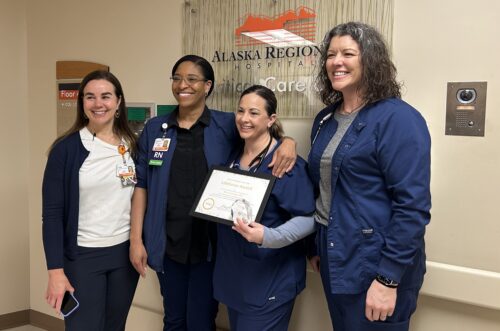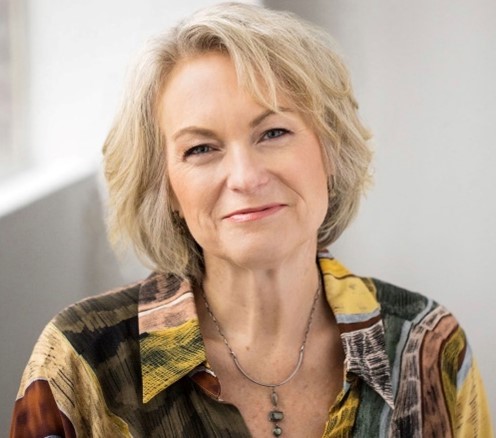In an effort to celebrate the successes and highlight the unique obstacles of our donation partners, we interviewed leadership from around our region to ask why donation is important to them, share what is unique about their region and what they enjoy most about living and working where they do. We are proud to feature Dr. David Lechner, Chief Medical Officer, Community Medical Center as this month’s Leader in Donation.

About Community Medical Center
Community Medical Center is located in Missoula, Montana. Missoula is a thriving community of 90,000, nestled in the Rocky Mountains of western Montana between Glacier and Yellowstone National Parks. Missoula is the region’s major medical and retail center, with a cultural diversity unique to a city of its size. Community Medical Center is licensed for 151 acute-care beds. The hospital has been providing obstetrical and newborn care in Missoula County longer than any other facility. It is one of only three facilities in the state offering high-risk obstetrical care and neonatal intensive care. Community Medical Center is also known for its rehabilitation center which is one of the largest, most comprehensive and longest-standing programs of its kind in the state of Montana. Community Medical Center also has a strong orthopedic program, along with developing Gastroenterology and Nephrology programs.
What does organ and tissue donation mean to you?
This hospital is one of the smaller PPS (Prospective Payment System) hospitals in the state, so we are not a large trauma center by any means. Our opportunities are more along the lines of women’s and children’s services that deal with NICU babies. We take care of the most extreme NICU babies in the region. I think that is a fair amount of opportunities. Generally, you think of organ donation coming from those trauma cases but that is less so for us. We may not see as many opportunities as some of the other larger hospitals because of our service line but we look for those opportunities when possible.
Key point: All hospitals can have organ and tissue donation opportunities even in hospitals that do not see a lot of trauma.
What’s unique about healthcare in your region?
I think we will understand more about what that looks like on the organ recipient end as we are about to open a nephrology program here. We have not had some of the sub-specialties that care for organ donor recipients, but our developing GI and Nephrology programs will see more patients where organ donation has come back to help those patients in need. We are seeing tissue donations return as we have a large joint replacement program within our orthopedic program. So, there is a lot of tissue usage with the products for joint replacements. It’s probably our single greatest use for tissue. As you are caring for the patients that are recipients and seeing the benefits it adds to their lives, it makes it easier to ask the staff to be aware of those potential donor patients and the process.
Key point: Organ and tissue donation comes back to the hospital full circle when the recipients who receive organ and tissue transplants require post-surgical care and rehabilitation at our facility. This is a wonderful opportunity for the healthcare team to see the benefits of donation and the impact on patients’ lives.
What makes you most proud of working at your hospital?
Personally, I like the smaller PPS hospital structure. We have most services available here. The staff is smaller and it is easier to get to know the staff on a first name basis as you walk through the halls. There are no strangers here, we have small groups working on innovative programs and working to change the paradigm of care delivery. It’s easier to get engagement and resolutions on challenging issues. There are still challenges, it’s not Lake Wobegon, but it’s that intimate nature of a working relationship with a smaller staff.
It’s a staff that starts with a smile. You can’t walk through the building and not feel that there is a different energy than other hospitals. They want to do the right thing for patients and are not necessarily pushing back on “let’s do something different”. We have a very active process improvement program with lean daily management. That management system has changed the culture and willingness of the average employee here to work on improving their processes and that’s a great place to be.
Why has your donation program been so successful and what drives you to make donation a priority in your hospital?
I think honestly, it’s your (referring to LifeCenter Hospital Development Coordinator, Bryce Enewold) presence here on a regular basis. You’ve made those relationships with the different staff members throughout the hospital. We’ve made some managerial changes so it’s a different group that are more adaptable to and are not as constrained by the adage of the old way we’ve always done it. But the biggest piece that has changed has been the relationships with yourself, the point of mind awareness and a regular presence here. I think we are starting to see some momentum with some gifts we’ve had in the past and are now starting to see that build, and that success just begets more success.
Best practice: Engaging a solid relationship with the organ procurement organization can help increase the awareness of donation among the care staff which increases opportunities to help more families through organ and tissue donation.
What do you love about living in your region?
I love the connectedness of the communities. There are two degrees of separation in Montana. Getting to know the neighbors around you is an importance for most people who live here, and it changes what the community feels like. The smallness in terms of population for the state, our access for making legislative change or getting involved at different levels within the community, particularly as a professional is greatly enhanced in a community or state of this size. There is such a wide variety of opportunities to get involved in the community and the community of Missoula embraces this.





